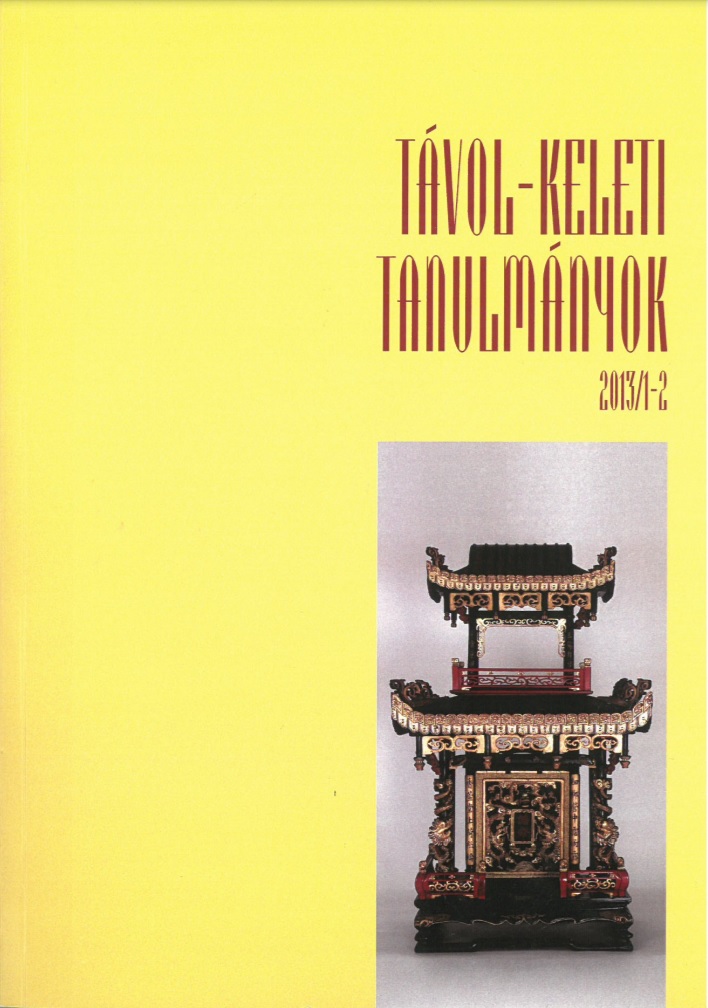„Bu 武” and „Bun 文”: the importance of philological research for a better understanding of Japan
Published 2014-10-03
How to Cite
Copyright (c) 2014 the author(s)

This work is licensed under a Creative Commons Attribution-NonCommercial 4.0 International License.
Abstract
The present study explores two major Japanese notions: bu 武 and bun 文, both of which played pivotal role in the traditional Japanese society. While bu 武 denoted military abilities and knowledge, bun 文 covered all other abilities and other types of knowledge outside the military sphere. In the introductory part, the author offers an overview of the Japanese works that are useful resources for the study of the bushi 武士 worldview. In the subsequent part the author proceeds to analyzing these two concepts in three early Japanese scriptures: the Kojiki 古事記 (AD 712), the Nihonshoki 日本書紀 (AD 720), and the Shoku Nihongi 続日本紀 (AD 797). By providing the original text and a Hungarian translation, the author amply cites from these early writings to give the reader a chance to correctly understand these basic notions.
